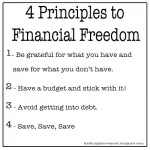Why is it that we as human beings have to be so hard on ourselves. I have felt this recently as I feel like I need to be more fit, or be a better homeschool mom. I have also felt very strongly lately that I need to stop being hard on myself and be more gentle with myself and who I am. I love this post written by Maurine Anderson sharing with us 5 Things to remember when your hard on yourself!
5 Things to Remember When You’re Hard on Yourself
By: Maurine Anderson
We as humans have a tendency to grossly underestimate our strengths and abilities, and this is perhaps more true now than ever before when you consider how often we present only our best selves on social media. Making comparisons to other people is only too easy, and when we make these comparisons we usually end up feeling less satisfied about our own strengths, abilities, and progress in various areas of life. In case you have a tendency to be harder on yourself than you should be, here are some helpful reminders about the unfair comparisons we so often make in life.
Stop comparing yourself to people who are older than you.
It’s easy in the career realm or in the blogging world to compare ourselves to people who are seeing more success in that aspect of their lives. But how often do we, especially towards the beginning of our working lives, compare our successes to those of people who are years older than us? Even just a three year age difference makes for an unfair comparison—especially if you are in your twenties. This doesn’t refer to age alone, either; if you just started blogging a year ago, for example, don’t compare your blog’s success to that of your favorite blogger, who has been at it full-time for over five years now.

Don’t compare your blooper reel to someone else’s highlight reel.
Here’s another thing about comparison: we have a tendency to compare our own faults and shortcomings to the strengths and successes of others. This may sound extreme, but think of it this way—how often do you see and know about the deeper faults of others, those ones that we see in ourselves every day? People have a natural tendency to present their better selves to the world, and this means that we see many people around us as almost perfect—even when they, too, are far from it. This is especially true when you consider how we typically present ourselves and our lives on social media. So when you find yourself comparing your qualities and successes to someone else’s, keep in mind that you’re making conclusions without having access to the whole picture.
Remember that it’s unrealistic to compare yourself to multiple people.
You can’t compare yourself to multiple people at once and realistically expect yourself to measure up to all of them. Everyone has their own strengths, and no one person possesses all of the qualities and successes that you so admire. You might, for example, compare your career to that of a human rights lawyer and feel less-than-adequate, all the while knocking yourself down for not being the perfect cook that another person you admire seems to be. We make comparisons like this with looks, career life, family life, education, and more; and we have a tendency to keep all of these comparisons at the forefront of our minds at once. Decide now to stop creating an ideal in your head that simply can’t exist, and instead focus on honing the strengths that you yourself have.

Discover what your strengths are.
Now you might be thinking to yourself, “What strengths do I have, then?” The thing about asking yourself this question, however, is that you are probably one of the most unreliable people you could be asking. You can probably name a few things that you excel at, but if you are like most of us, there is a great deal that you are missing because of the way that negative self-image can cloud your vision. One key to discovering your strengths is to listen to other people when they compliment you or seek your advice. If you’ve been told on multiple occasions that you are a good teacher, for example, then teaching is probably one of your strengths. If people frequently come to you for help in editing their papers, then you probably have a knack for writing. It can also help to pay attention to the things you naturally gravitate toward, as your passions can help tell you what you are innately good at. Keep in mind that strengths can be defined very specifically, so they won’t always be simple things like “singing” or “writing.” You might have a knack for detecting needs in others, for example, or a particular aptitude for solving problems in the most efficient way possible.
Remember that growth is relative.
It can help to remind yourself that growth is relative, and what growth means for you is going to be very different from what it means for someone else. It can help to make an analogy to economics here. This article about national economies talks about how we compare different countries’ economies by their GDP (gross domestic product); the idea here is that a higher GDP will indicate that a country is excelling in individual factors such as trade, employment, and industrialization. Yet that GDP doesn’t exactly detail what is going on with those individual factors. One country might be excelling especially in employment, for example, while another is excelling more especially in trade; yet their GDPs are very close to one another. Remind yourself that growth is relative in this way in individuals, as well. You may not be seeing as much growth in your career at the moment, but maybe you’re growing significantly in another area of your life, such as emotional strength. You could be growing just as much as the people you’re comparing yourself to—only in a different way.
Thanks for the excellent post, Maurine





